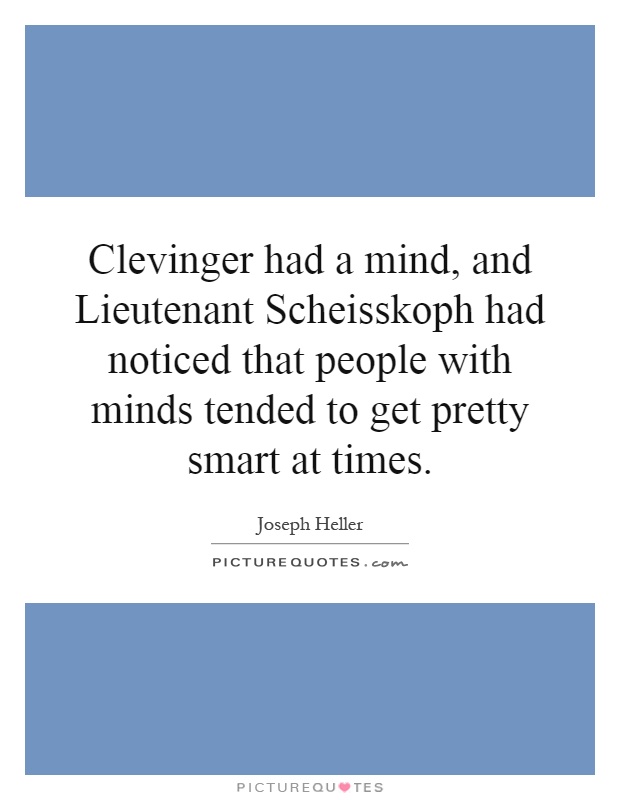Clevinger had a mind, and Lieutenant Scheisskoph had noticed that people with minds tended to get pretty smart at times

Clevinger had a mind, and Lieutenant Scheisskoph had noticed that people with minds tended to get pretty smart at times
In Joseph Heller's novel "Catch-22," the character of Clevinger is portrayed as a thoughtful and intelligent individual, in contrast to the rigid and authoritarian Lieutenant Scheisskoph. The quote "Clevinger had a mind, and Lieutenant Scheisskoph had noticed that people with minds tended to get pretty smart at times" highlights the importance of critical thinking and independent thought in a world where conformity and obedience are often valued above all else.Clevinger's intelligence and ability to think for himself make him a threat to the established order within the military hierarchy. His questioning of authority and willingness to challenge the status quo make him a target for those in power who seek to maintain control through fear and intimidation. Lieutenant Scheisskoph, as a representative of this oppressive system, views Clevinger's intelligence as a potential threat to his own authority and seeks to suppress it through punishment and coercion.
However, Clevinger's intelligence also serves as a source of strength and resilience in the face of adversity. His ability to think critically and analyze situations allows him to navigate the absurdities and contradictions of war with a sense of clarity and purpose. While others may blindly follow orders and conform to the expectations of their superiors, Clevinger remains true to himself and his beliefs, even in the face of overwhelming pressure to conform.












 Friendship Quotes
Friendship Quotes Love Quotes
Love Quotes Life Quotes
Life Quotes Funny Quotes
Funny Quotes Motivational Quotes
Motivational Quotes Inspirational Quotes
Inspirational Quotes